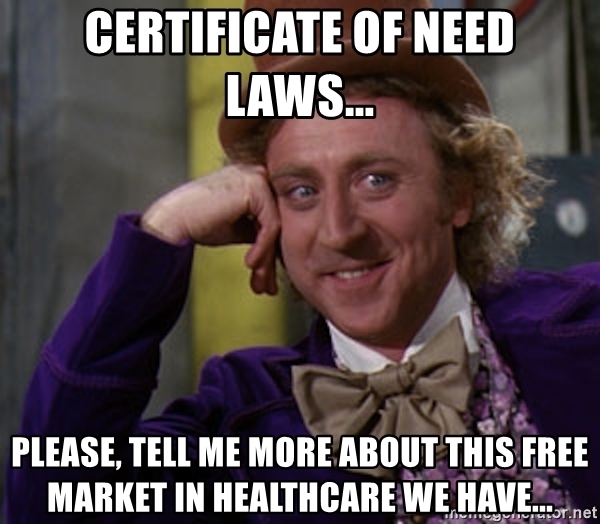Amidst the current global pandemic of COVID-19 there is another more sinister and stealthy infection moving through society: BBD-20, Binary Brain Disease. It renders the victim incapable of analyzing any topic, in particular the COVID response, in anything other than a good/bad false choice mode. For years this disease festered amongst the political class but for the most part was confined to that realm. It has now broken through those ranks and spread to the general populace. It sickens the soul of this country, as its victims willingly disown the Constitution while all but begging for martial law. And people wonder how the fascist regimes in Germany, Italy, and Japan so easily subdued their populace into compliance. They did so through fear; fear of the “other”. Today that other is not some corporeal enemy but instead the invisible specter of a potential harm.
Currently the most common symptom of BBD-20 is the belief that any discussion regarding the immense social, economic, and mental devastation resulting from bankrupting tens of millions of people equates to an obvious desire to kill grandma and millions like her. Furthermore the infected commonly engage in very public virtue signaling via sanctimonious pronouncements about how obviously basic morality compels us to lock ourselves in our basement for an indeterminate period in order to protect the “vulnerable”. Newsflash: those that are immune compromised face that risk from all diseases, not just COVID. Anyone else at risk with COVID should protect himself or herself and not expect the rest of the planet to bankrupt themselves trying to protect them. There are reasonable precautions and there are unreasonable. Right now we are in the unreasonable zone, but even the mere thought of a conversation about dialing it back to the reasonable zone sends BBD-20 victims into apoplexy.
I suppose this is to be expected. Our society is largely the product of a public school system that propagandizes its citizenry into the false narrative that the state is our savior. A savior is of course omniscient (after all a less wise being cannot save us). It is imprudent to question our betters, so unsurprisingly those of us that do so are chastised to no end: “How dare you question such and such, don’t you know he’s an EXPERT!?” This mistaken belief in state level omniscience compels many to suspend their critical faculties and blindly follow the state anointed “experts.” Never mind that these very same “experts” told us in January that,
“this is not something that the citizens…should be worried about right now.” (Fauci, Jan 2020)
First we are told we don’t need masks, now we are told we do. Ok, well which is it? Were they wrong then and right now, or right then and wrong now? Were there weapons of mass destruction or were there not? When exactly is the state lying to us or when are they merely incompetent? I suspect it is a bit of both, after all, the political class (elected and appointed) are largely made up of the C-students that couldn’t cut it in the real world and so have carved out a cushy sinecure in the hierarchy of state mediocrity.
Again this ignorance is to be expected. The state school systems do not teach economics. They barely teach history. Nobody learns about tradeoffs, marginal benefits, or the division of labor. If they did they would understand one does not simply “stop” the marketplace and restart it later with little to no harm. If these concepts were taught, then the political class would understand one can’t repair the damage that they are causing throughout society by merely printing money. Most people genuinely have no idea how the goods they order on Amazon end up on their front porch. Even the most mundane of products is the result of the truly invisible hand of the market that coordinates millions of individuals across hundreds of sectors. To truly grasp the depth of that statement I encourage the reader to take a look at “I, Pencil” by Leonard Read.
In any event, in a non-political society where “the people” lack the power to meddle with things they don’t understand their lack of understanding would be irrelevant, insofar as they could not derail that which they cannot grasp. The current state of affairs is comparable to people banning electricity but expecting their smart phones to continue working.
It is telling that the more vocal proponents of these “shut it down” measures are those that work either directly or indirectly for the state or a state (tax) supported sector of the economy. Those other people, who have been deemed “non-essential,” they should lose everything. It’s for the “greater good” after all. Those in the non-essential camp see it differently. How grotesque a society have we become when someone can turn to their neighbor and tell them that they are “not essential” to society while they collect their “essential services” paycheck from their state connected employer? Were the hospitality and other “non-essential” sectors of the economy allowed to operate again would they not see a steep decline in revenues? Yes, of course – but it wouldn’t be zero revenue as it is now. At this point anything is better than zero.
Maybe, just maybe, the solution to this problem is not to go running to the very entity (the state) that is the proximate cause for the dilemma we see ourselves in. The state has only one solution for every problem it encounters: pass a law and then back that law up with the threat of violence – the state is literally a hammer that sees every problem as a nail. There are a million instances of state created distortions in society that have hampered our ability to cope with this pandemic, but let’s just look at the top three:
(a) Certificate of Need laws severely restrict the number of hospitals and hospital beds in Georgia (and in 34 other states in the US) – there would be far more beds right now had these laws never existed, this one is not even debatable,
(b) Regulatory bodies like the FDA have for years thrown up a wide assortment of regulatory barriers that have kept safe, cheap, and effective treatments and tests for a myriad of diseases and ailments from being available to the public or needlessly delayed them for years; to wit, the CDC delayed testing in this country for weeks as it bungled about trying to make its own kit while existing kits were already available
(c) the sclerotic monetary and financial system propped up by the inflationary monetary policies of the Federal Reserve ensured and promoted wide ranging financial moral hazards that rendered most companies unable to cope with unpredictable downturns such as this pandemic – a pandemic that would never have become a pandemic in the US had (a) and (b) not been an issue.
To turn to the state now as our savior is like asking your dentist to remove all your teeth, both cavity infected and not, when it was that same dentist that advised you your whole life to eat sugary foods and brush your teeth with cake frosting. Yes, perhaps now you have few options, but at least get a second opinion and make a note to ignore or critically evaluate all future advice.




The problem is not so much the lack of means to pay, as it is the lack of ability to make a choice. If you are going to die or lose a limb in the next hour without treatment, or if you are unconscious, you have no ability to consider your options, and no ability to freely enter into contract with a service provider That’s a market failure, in the sense that, for all practical purposes, there is no market, not merely that the market produces an outcome you dislike.
Is the solution, therefore, that all such cases would simply have to be taken care of by charitable institutions